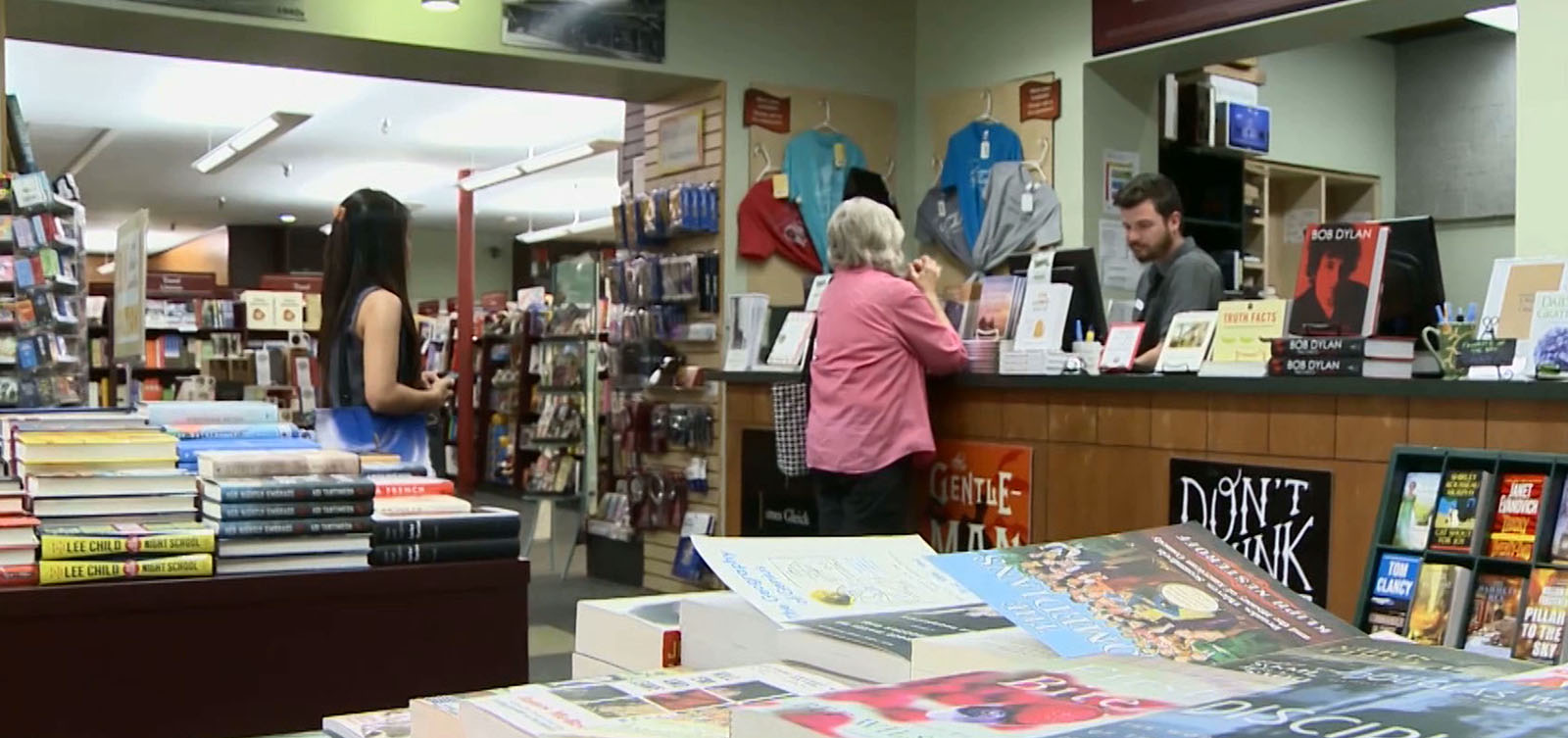Brick-and-mortar bookstores have taken a hit with the rise of online booksellers. But in major cities across China, a number of local bookstores have managed not only to survive, but to thrive. What’s the secret to their success?
CGTN’s Cui Hui’s visited one of the most popular bookstores in Beijing.

Bookstores can be one of the most popular places to spend your time these days. This bookstore in Beijing’s Chaoyang District attracts thousands of readers on weekends. With a space of around 500 square meters, the store lures customers with its soft lighting, bright decorations, and curved shelves. It even carved out a special zone for children.
“The key is to cooperate with commercial properties, like shopping malls. Most of our stores are located inside a mall. And it’s a win-win strategy because on the one hand, commercial estate developers want to go hand in hand with the culture industry, and bookstores can keep customers in their malls for a longer period of time. On the other hand, we get a lower rent from working with them. For example, our rent accounts for about 10 percent of our sales volume,” Ariel Hu, manager of Sisyphe Books said.
But location alone does not explain their popularity. Service is another reason pulling people in. Like all the trendy bookstores in Beijing, this bookstore includes a well-designed cafe, with a size of almost one-fifth the entire store. Readers come in with a book, which they probably haven’t decided whether they want to buy or not, sip a cup of coffee and enjoy the relaxing time.
“This is actually my first time coming to a bookstore in years, because I used to buy books online. But people told me about these new bookstores and I like the vibe in here a lot. It feels tranquil and welcoming. I would actually consider bringing my kids over on weekends,” one customer said.
In order to keep customers coming, most of the trendy bookstores also regularly offer interactive activities, like lectures, reading clubs, and book salons. In this way, bookstores are no longer just about selling books, but are being transformed into a cultural space.
Only a couple of years ago, there were stories about how bookstores in China had to close due to fierce competition of e-commerce and rising rents. A few years later, the brick-and-mort bookstores in China have staged a beautiful comeback. The question is how long is the trend going to last.
“Despite the heat at the moment, we believe there is still a lot of potential in nuturing the book market because Chinese people in general do not spend that much time in bookstores. Especially in second and third-tier cities, we see a huge demand among readers for an experience at brick-and-mortar bookstores. So those are the areas where we believe there is still room to grow,” Hu said.
Hu and her bookstore’s bigger ambition is to build a bookstore chain as popular as Starbucks and UNIQLO, making “book-shopping” an essential part of people’s daily lives.
Richard Nash discusses the future of the publishing industry
For more on how bookstores are doing globally,and the future of the publishing industry, CGTN’s Rachelle Akuffo spoke with the CEO of Cursor, Richard Nash.
 CGTN America
CGTN America

